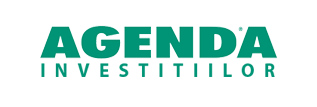| TASKS for new ift Rosenheim Director, in the „new normality” era |
| Furnizori de sisteme Publicat de Ovidiu Stefanescu 15 Iul 2020 05:10 |
 Recently, the board of directors of ift Rosenheim has appointed Prof. Jorn P. Lass as Ulrich Sieberath successor. He has already rejoined ift Rosenheim on 1 October 2019 as deputy director of institute. Prof. Jorn P. Lass has been working in the window and façade industry for over 36 years. It all started with an apprenticeship as a glazier and window manufacturer. After studying wood technology, he worked for a licenser in the international project business and as a project manager in window and facade construction companies - finally as a technical engineer for a medium-sized window and facade manufacturer. This was followed by 14 years of management responsibilities at ift Rosenheim in the areas of research, testing, quality control, standardisation and certification. For the last six years, he was professor at Rosenheim University of Applied Sciences, where he gave the course "Building Envelope". Recently, the board of directors of ift Rosenheim has appointed Prof. Jorn P. Lass as Ulrich Sieberath successor. He has already rejoined ift Rosenheim on 1 October 2019 as deputy director of institute. Prof. Jorn P. Lass has been working in the window and façade industry for over 36 years. It all started with an apprenticeship as a glazier and window manufacturer. After studying wood technology, he worked for a licenser in the international project business and as a project manager in window and facade construction companies - finally as a technical engineer for a medium-sized window and facade manufacturer. This was followed by 14 years of management responsibilities at ift Rosenheim in the areas of research, testing, quality control, standardisation and certification. For the last six years, he was professor at Rosenheim University of Applied Sciences, where he gave the course "Building Envelope".- What is your motivation for taking on the challenging task as Director of ift Rosenheim?
- This institute has a very wide range of services that is optimally networked in the national and international environment. It is not only a testing and certification body, but also an initiator, advisor, rule-setter, door opener, researcher, trainer and sometimes even lobbyist for the industry. It is a great honor for me to continue and further develop this expertise built up over the years, with all my energy and knowledge. It gives me the opportunity to return some of what I have learned over the years to the industry and to give the windows, doors and façade industry new impulses. I am also motivated by the opportunity to continue the great technical developments of the past. Just think of how Germany revolutionized the window and curtain wall technology in the 70’s after the energy crisis. For example, new materials and technologies were developed for frames and for highly thermal insulating glazing. This made transparent buildings possible in the first place, which still characterize the building style and architecture today. Now we must promote innovation through research and development to take the next big step towards climate-neutral and sustainable buildings. - Which are your strengths that you bring to this demanding task?
- During my 14 years at ift Rosenheim, I have been able to gain expertise and leadership in the areas of research, testing, quality control, standardization and certification. Prof. Sieberath was my mentor who always supported me in difficult situations with his experience and negotiating skills. At the University, I was not only able to expand my technical knowledge by supervising research and final theses, but also learn to inspire people for technology and to maintain networks. Today, the complex tasks can only be successfully solved in interdisciplinary teams, and that is why my experience is very valuable for the demanding challenge of managing the institute. I am a technophile person and take great pleasure in further improving products and processes or breaking new ground through disruptive innovations. I prefer to do this in interdisciplinary teams, because it is only through the many different perspectives that innovative solutions are created. Therefore, I am looking forward to working together with my colleagues, but also with various Committees. I would also like to expand contacts in the university landscape to create added value for the industry through collaborative research and development. - What are your goals on short and medium term?
- The industry does not support ift Rosenheim out of tradition, but only if we give impetus to it. We must help shape change in the world. When technologies and distribution channels change, we have to provide the industry with ideas and solutions for implementation. I think that the energy requirements for the elements in the building envelope will continue to rise for slowing down or even stopping climate changes. Here we must provide ideas on how this can be achieved with our building elements for new constructions and energy-efficient refurbishment. I believe that Germany is one of the first industrialized nations to achieve the energy turnaround. We have the know-how and the resources to develop and implement new technologies, so that the world remains worth living in for our children. ift Rosenheim will place its stint on this. In the next few months will focus on familiarization, exchange with managers and colleagues and the construction of the new laboratory "Building Acoustics + Façade" including the international recognition of the tests (UL, AAMA, ASTM, etc.). It is also important to personally meet important clients and partners of ift Rosenheim and to get their expectations. After that, I will devote more time to research, because the previous funding landscape has changed considerably. Smaller, practice-oriented projects are hardly ever funded, and for large collaborative projects, funding is needed to provide the required 50% industrial share. This can only be achieved through cooperation. There are enough urgent and challenging tasks, for example improving energy efficiency through new materials and designs. Automation (smart home, etc.) and digitization (BIM, etc.) will affect our industry as much as other sectors of the economy. But research will certainly challenge me in the next 3 - 5 years' time and beyond. Here, I will continue to expand the cooperation with the Technical University. In addition to this, there is also the familiarization with various standardization committees and, step by step, the assumption of the chairmanship of Prof. Sieberath. In the medium term, the possibilities of digitization must also be used more intensively at the institute. This applies not only to digital distribution and communication channels and processes, but also to the expansion of digital services. We are already on the right track with the installation tool or the CE generator. Simulation and calculation services will continue to be expanded in the future, for example with a ventilation planner. We have the great advantage that can validate algorithms through our own tests. As for the long-term goal, this is to establish the institute as a leading national and international provider for development, testing and certification of technologies for the entire building envelope. As technologies and distribution channels evolve, we must always be one step ahead of the market and our competitors and help our clients succeed with the right services. Also, since we need highly qualified employees for future tasks in the industry and at the institute, I will continue to teach at the Technical University and push the expansion of the ift Academy. -Please, name your most important guiding principles.
- Everyone who knows me is aware about how enthusiastic I am in technology and the fact that I like to pass on my knowledge. When I can share my enthusiasm for good products and intelligent solutions with people, the best results are achieved. The willingness to constantly question oneself and to be open to alternative solutions is an absolute prerequisite for improving things sustainably. This is especially true for stopping the climate change as a historical task for humanity and a responsibility not only to my children, but to all children of the world. In principle, I believe that one must constantly develop oneself further. That is why the quote from Philip Rosenthal "He who stops getting better has stopped being good" expresses my attitude. |
ABONARE REVISTA (click aici): PROIECTE | INVESTITII | REVISTE | INDEX COMPANII
DATE DE CONTACT: Agenda Constructiilor & Fereastra - Tel/Fax: 021-336.04.16, 021-336.04.17






































